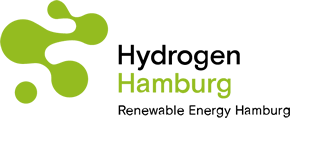Details
Energy(ies) transition at bp Interview with Patrick Wendeler, CEO BP Europa SE
The oil firm bp has begun its transformation into an integrated energy company. Read this interview to find out what this specifically means, what role wind power and hydrogen will play for the company in the future and why it was the principal sponsor of this year’s cross-cluster conference on 13 February.

The oil firm bp has begun its transformation into an integrated energy company. Read this interview to find out what this specifically means, what role wind power and hydrogen will play for the company in the future and why it was the principal sponsor of this year’s cross-cluster conference on 13 February.
Last autumn, bp announced that it wanted to invest ten billion euros in its German operations by 2030. What are these plans and what role does hydrogen play in these?
That’s right, we want to implement the largest investment programme in bp’s history in Germany by 2030. This includes investments in mobility and convenience, in our two refineries in Lower Saxony and NRW as well as investments in green hydrogen and renewable energy, such as offshore wind. In the case of green hydrogen, for example, we’re working on installing a 100 MW electrolyser in Lingen and testing the construction of an ammoniac import terminal in Wilhelmshaven, which could import up to 130,000 tons of hydrogen per year from 2028. In order to achieve the energy transition in Germany, greater technological bias is required, with regard to biogenic fuels, reliable planning as a result of less regulation and above all faster approvals, for example.
How active is your company in the Metropolitan Region of Hamburg?
Many people may not be aware that Hamburg is the headquarters of BP Europa SE and we’ve long been active in the Metropolitan Region with our brands Aral, Aral pulse, Castrol and bp. The region also plays an important role in our transformation into an integrated energy company. Not only does Air bp supply Hamburg Airport with aviation fuel, but we’re also coordinating the development of an ultra-fast charging network for the whole of Germany from Hamburg under the Aral pulse brand. With Castrol, we’ve got a large lubricant factory in the port of Hamburg and last but not least, we’re planning to make a major contribution to the development of a hydrogen economy in Hamburg. Last year, we also entered the German offshore wind market and are expanding our offshore wind team in Hafencity accordingly. As you can see, the Metropolitan Region of Hamburg is extremely important to us.
bp says it’s transforming itself into an ‘integrated energy company’. What does this mean?
We believe there’s no way of avoiding the transformation of the energy business, which is still based almost exclusively on carbon. That’s why bp has initiated its transformation from an international oil and gas firm into an integrated energy company. For us, this is an ‘and, not or’ approach, because today’s energy can only be replaced by lower-carbon alternatives as a part of an orderly transition. We want energy to be more sustainable, secure and affordable in future. bp believes that hydrogen and wind power play an important role in this.
How important are the transport, aviation and shipping sectors to bp and what was the role of the cross-cluster conference on 13 February in this regard?
We’re active in all these sectors. The cross-cluster conference was an excellent opportunity for us to demonstrate bp’s diversity and above all present the solutions that we offer and develop for our customers. We very much welcome the fact that this conference brought together all these clusters and broke down the ‘silo mentality’ between energy sources and the principal stakeholders from politics, business and science. bp also follows this approach. We have to think about energy in an integrated manner and act accordingly. We’re ready to play our part and take appropriate action.
In 2023, bp was awarded the around EUR 6.8 billion contract for two offshore wind projects in the North Sea. How will wind power supplement bp’s core business?
bp is already developing offshore wind projects, in the US and UK for example. And last July, we were fortunate to also be awarded the German contract to develop up to 4 GW of offshore wind projects in the North Sea. We aim to use these projects to supply renewable energy for the production of green hydrogen and biofuels, the expansion of e-mobility and the sustainable operation of German industrial plants that are difficult to decarbonise.
Aim 8 of the bp strategy is: review our association work (our aim 8 is to define new expectations for our relationships with global business associations.) What does this mean for your EEHH membership?
bp aims to become a net-zero company by no later than 2050. Participating in associations helps us pursue this goal. We therefore ensure that the associations we belong to adopt a progressive approach to climate change. As EEHH actively focuses on climate change, our aim 8 does not affect our association work with EEHH.


